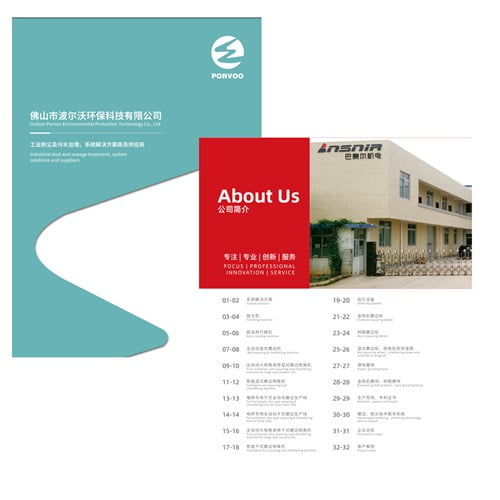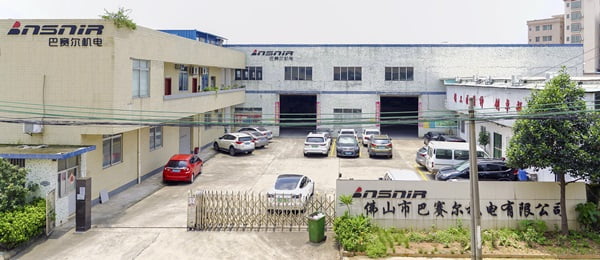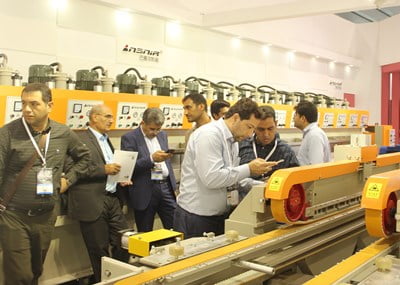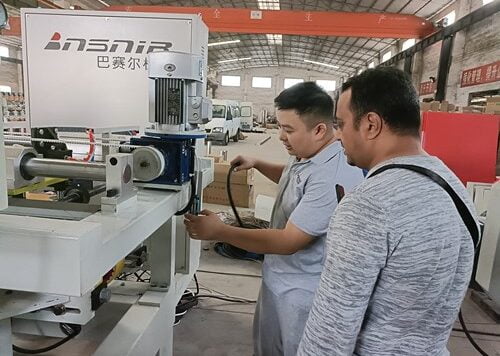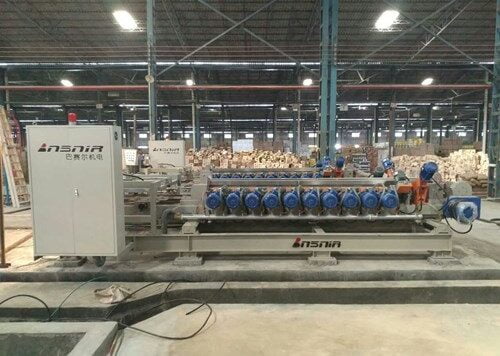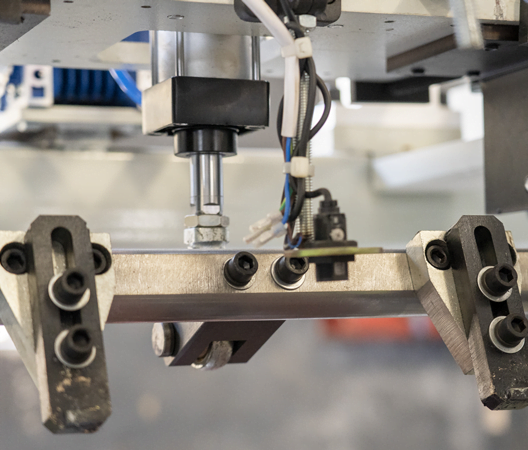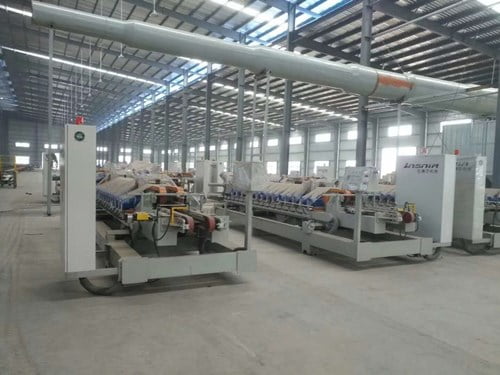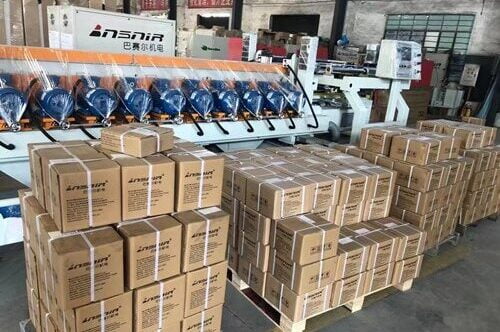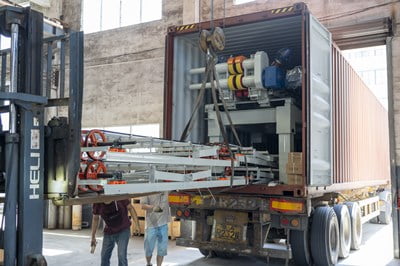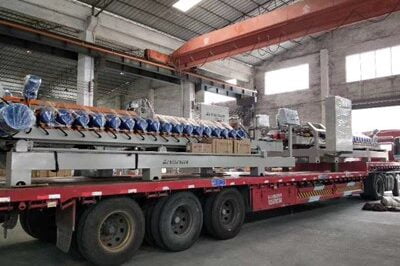Bei der Herstellung von Keramikfliesen sind Präzision, Effizienz und Qualität von größter Bedeutung. Ein Werkzeug, das sich bei der Erreichung dieser Ziele besonders auszeichnet, ist die BASAIR Trockenquadrierscheibe. Im Folgenden finden Sie einen umfassenden Leitfaden, der Ihnen hilft, die Merkmale, Vorteile und Typen dieser innovativen Räder zu verstehen.
Was sind BASAIR Dry Squaring Wheels?
Die BASAIR Dry Squaring Wheels sind spezielle Schleifwerkzeuge, die dazu dienen, die Kanten von Keramikfliesen zu bearbeiten und zu perfektionieren, ohne dabei Wasser zu verwenden. Auf diese Weise werden Probleme wie Wasseraufnahme, Schimmel und Verfärbungen vermieden, was sie ideal für Fliesen mit hoher Wasseraufnahme macht.
Hauptmerkmale der BASAIR Trockenquadrierräder
Hochgeschwindigkeits-Effizienz
- Diese Räder sind für hohe Geschwindigkeiten und schwere Lasten ausgelegt und reduzieren Stillstands- und Wartungszeiten erheblich, was die Produktivität steigert und die Betriebskosten senkt.
Hervorragende Oberflächengüte
- Mit hoher Schleifkraft und ausgezeichneter thermischer Kontrolle gewährleisten die BASAIR-Trockenschleifscheiben ein feines und glattes Oberflächenfinish, frei von Glasurabplatzungen und schwarzen Rändern.
Anpassung und Kompatibilität
- BASAIR bietet maßgeschneiderte Rezepturen für verschiedene Fliesentypen und ist mit verschiedenen Produktionslinien für Fliesenrakelmaschinen kompatibel, darunter KEDA, ANCORA, BMR und PEDRINI.
Typen von BASAIR Trockenquadrierrädern
Hier finden Sie eine Aufschlüsselung der verschiedenen Typen von BASAIR-Trockenquadrierrädern:
| Rad-Typ | Beschreibung | Anmeldung |
|---|---|---|
| BSR-01 | Schruppscheibe mit langer Lebensdauer, hoher Schärfe und guter Wärmeableitung. Vorschubmenge: 1-2 mm. | Anfangsphase der Fliesenrandbearbeitung, geeignet für Fliesen mit geringer Wasseraufnahme und höherer Härte |
| BSR-02 | Feinere Diamantscheibe, die in Verbindung mit BSR-01 verwendet wird. Vorschubmenge: 0,5-1,5 mm. | Kontrolliert das Zusammenfallen der Glasur und reduziert den Verbrauch der nachfolgenden Schleifscheiben |
| BSR-03 | Kunstharzgebundene Scheibe für Feinschleifarbeiten. Sorgt für eine glatte Arbeitsfläche mit minimalen Verschleißspuren. | Feinschleifen und Reparaturverfahren |
| BSR-04 | Feinfühliger als BSR-03, geeignet für Feintrimmen. Vorschubmenge: 0,01-0,1 mm. | Letzte Phasen der Verfeinerung der Kachelkanten |
Bindungsmethoden
BASAIR-Trockenquadrierräder sind in zwei primären Bindungsmethoden erhältlich:
Metallbindung
- Sie zeichnen sich durch hohe Härte und Verschleißfestigkeit aus und werden durch Mischen von Kupfermetallpulver mit Diamantpulver hergestellt. Allerdings können sie anfällig für Verschleißspuren sein.
Kunstharzbindung
- Bietet eine glattere Arbeitsfläche mit geringerer Härte, hergestellt durch Mischung von Harzmaterial mit Diamantpulver. Ideal für Feinschleifprozesse und gewährleistet minimale Verschleißfestigkeit.
Wichtige Überlegungen zur Wahl des richtigen Rades
Bei der Auswahl eines BASAIR-Trockenquadrierrads sind die folgenden Faktoren zu berücksichtigen:
Fliese Material
- Verschiedene Fliesenmaterialien erfordern unterschiedliche Arten von Abkanträdern. Für härtere Materialien können gezahnte oder segmentierte Räder erforderlich sein, während weichere Materialien mit Rädern mit durchgehendem Rand effektiv geschnitten werden können.
Gewünschtes Finish
- Das gewünschte Ergebnis für Ihre Fliesen ist ausschlaggebend für Ihre Wahl. Für eine glatte, hochwertige Oberfläche sind Räder mit durchgehendem Rand ideal. Für einen aggressiveren Schnitt sollten Sie gezahnte oder segmentierte Räder in Betracht ziehen.
Produktionsgeschwindigkeit
- Hochgeschwindigkeits-Produktionslinien profitieren von segmentierten Felgenrädern aufgrund ihrer höheren Schnittgeschwindigkeiten und besseren Kühlungsmöglichkeiten. Räder mit durchgehendem Rand eignen sich besser für langsamere, präzisere Trennaufgaben.
Umweltbedingungen
- Überlegen Sie, ob Sie die Quadrierscheiben in einer trockenen oder nassen Umgebung verwenden werden. BASAIR Trocken-Quadrierscheiben sind für den Trockenbetrieb ohne Kühlmittel geeignet.
Schlussfolgerung
Die BASAIR-Trockenquadrierscheiben sind ein entscheidender Fortschritt in der Keramikfliesenproduktion. Mit ihrer Hochgeschwindigkeitseffizienz, ihrer hervorragenden Oberflächenqualität und ihren Anpassungsmöglichkeiten stellen diese Räder sicher, dass Ihre Fliesen mit Präzision und Qualität produziert werden. Ob Sie nun mit Porzellan- oder Keramikfliesen arbeiten, BASAIR hat die perfekte Lösung, um Ihre Produktionseffizienz und -qualität zu verbessern. Investieren Sie in BASAIR Dry Squaring Wheels und erleben Sie den Unterschied in Ihrem Fliesenherstellungsprozess.

